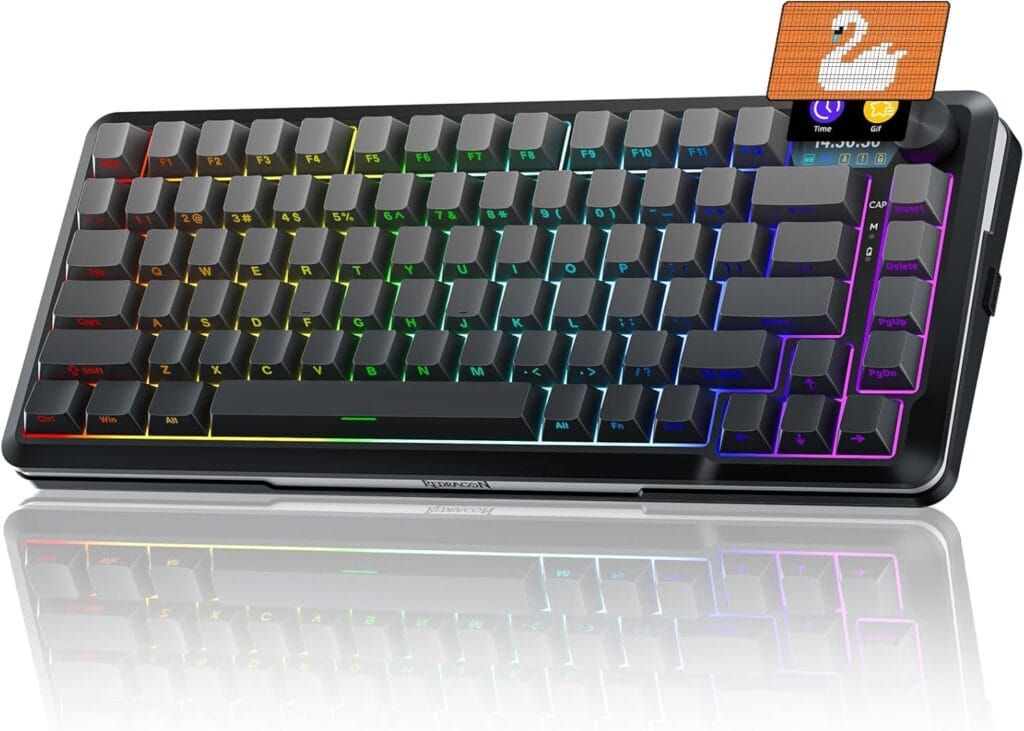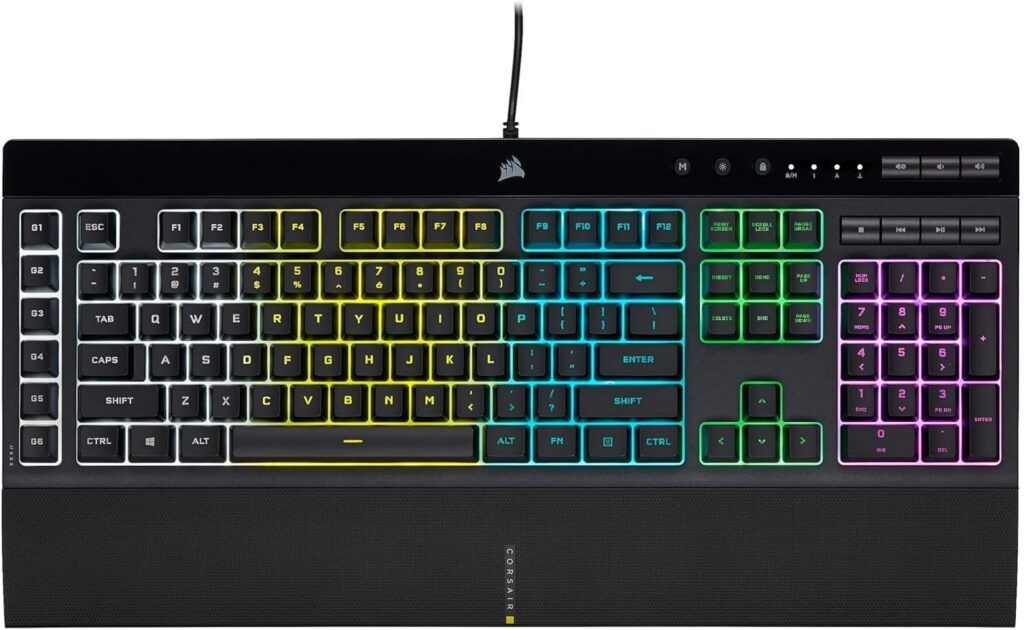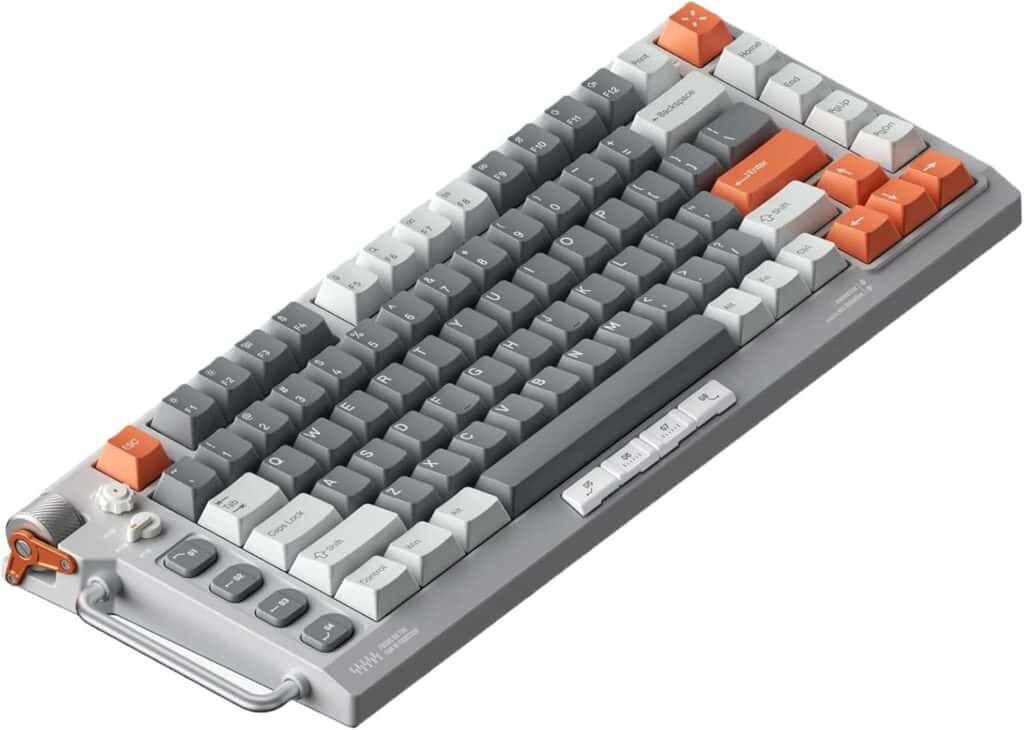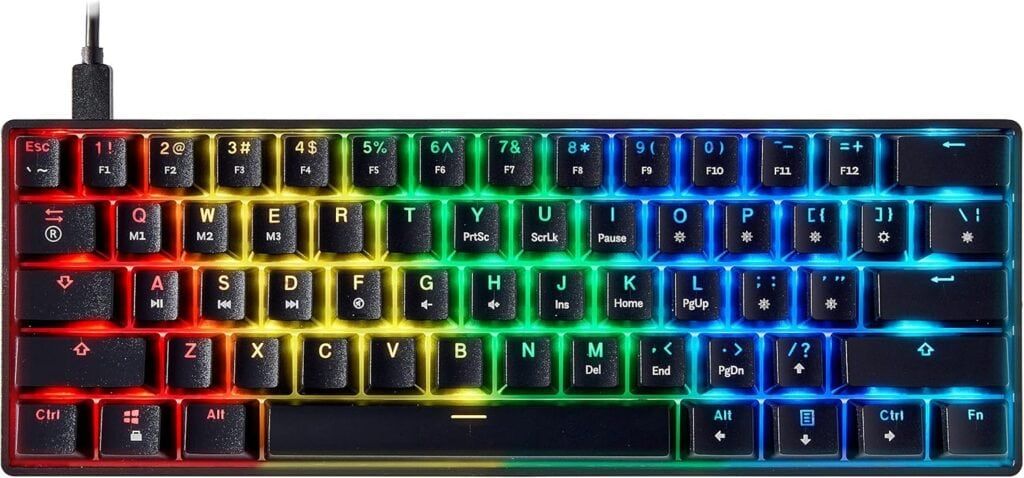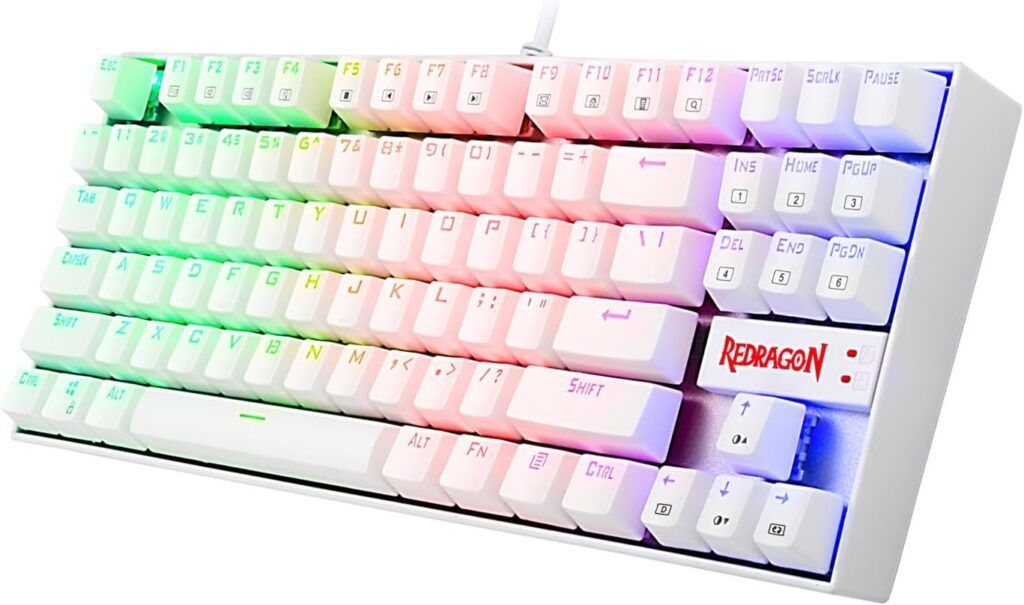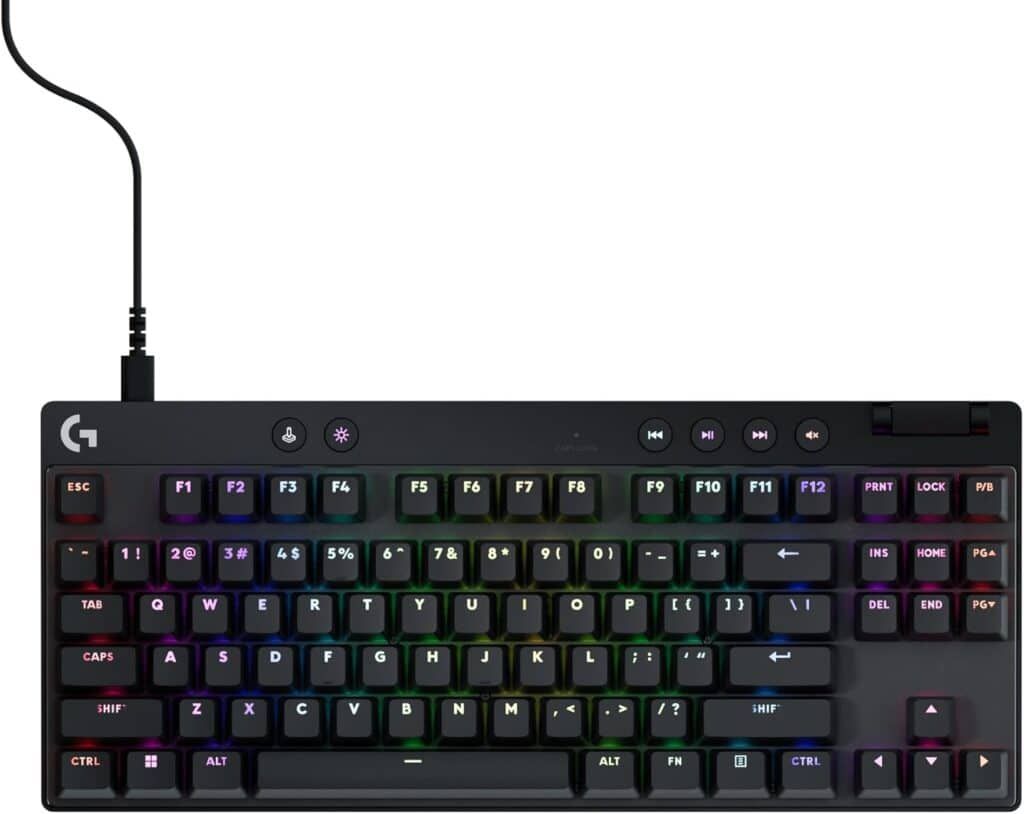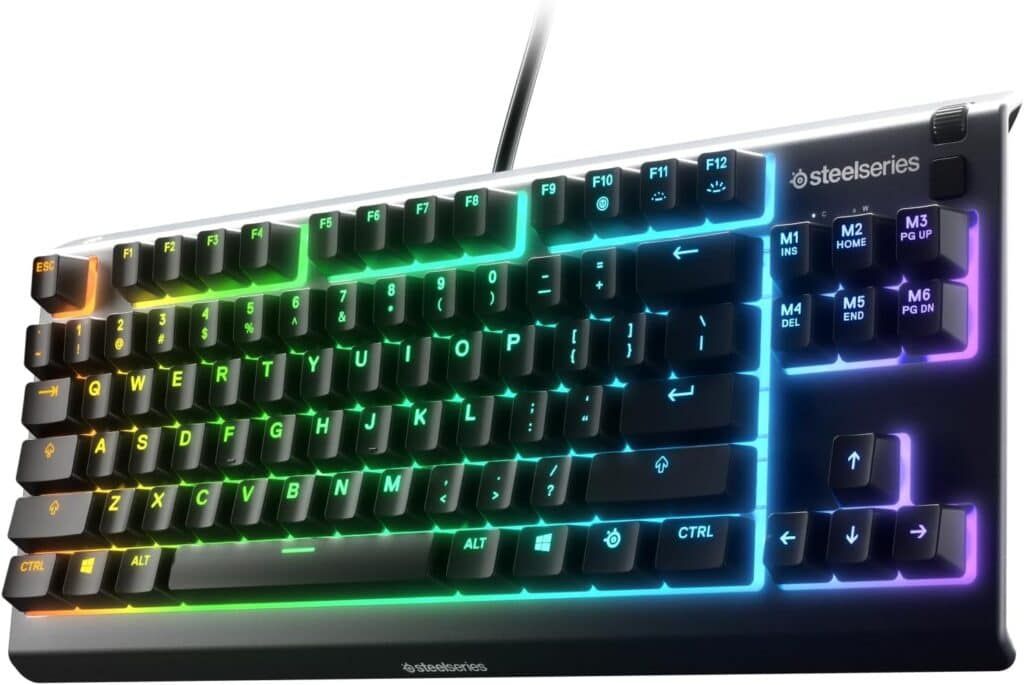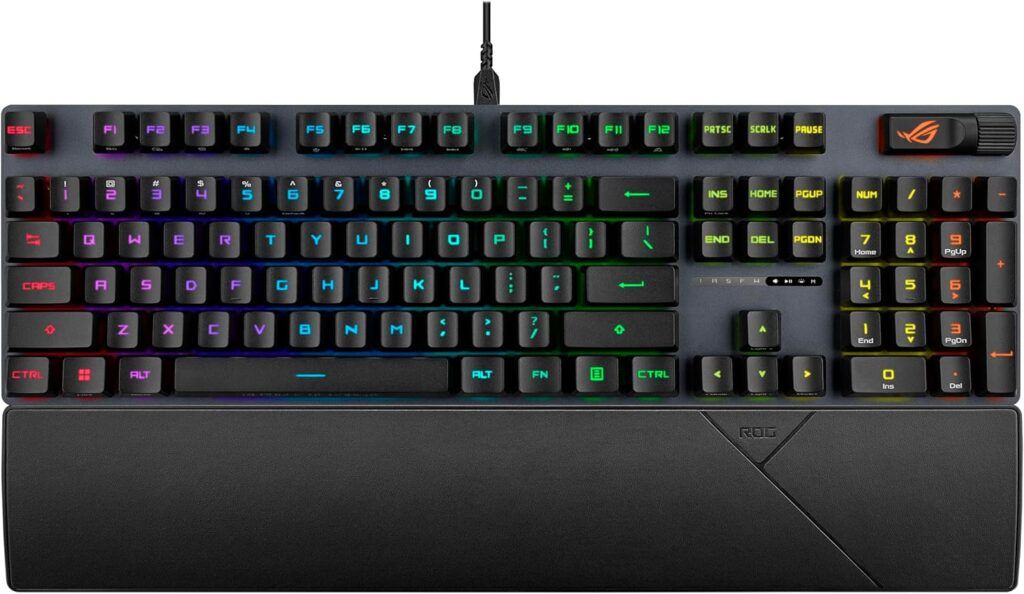We tried 18 top-selling gaming keyboards under $200, and these 8 performed the best.
The Redragon Wireless Mechanical Keyboard stood out from the pack by combining premium features like hot-swappable switches, wireless connectivity, and a smart LCD screen at an unbeatable price point. For those who prefer the quiet reliability of membrane switches, the Corsair K55 RGB PRO impressed us with its spill-resistant design and incredibly low price tag. Elsewhere, competitive gamers will gravitate toward the NuPhy Field75 HE, which delivers cutting-edge magnetic switch technology and adjustable actuation points that can provide a genuine competitive advantage.
What sets our testing apart is real-world usage across different scenarios – from intense FPS gaming sessions to long coding marathons. We’ve evaluated switch feel, build quality, software functionality, and long-term durability to ensure our recommendations serve you well for years to come.
Quick List: Best Gaming Keyboards
- Redragon Wireless Mechanical Keyboard: Best Overall Value
- Corsair K55 RGB PRO: Best Under $60
- NuPhy Field75 HE: Best for Competitive Gaming
- Mizar MZ60 Luna: Best Compact Option
- Redragon K552: Best Budget Option
- Logitech G PRO X TKL: Best Premium Rapid Trigger
- SteelSeries Apex 3 TKL: Best Quiet Gaming Keyboard
- ASUS ROG Strix Scope II: Best Full-Size Gaming Keyboard
How We Chose the Best Affordable Gaming Keyboards
Our comprehensive testing process began with evaluating 18 top-selling gaming keyboards across various price points and feature sets. We subjected each keyboard to rigorous real-world testing over several months, including extended gaming sessions across different genres, from competitive FPS titles requiring rapid inputs to strategy games demanding complex key combinations. Our testing methodology focused on key responsiveness, build quality assessment through daily use, and long-term durability evaluation.
We prioritized keyboards that offered genuine value rather than simply the lowest price. This meant evaluating features like switch quality, RGB implementation, software functionality, and build materials against their respective price points. Each keyboard underwent stress testing for key rollover capabilities, anti-ghosting performance, and connection stability. We also assessed ergonomics during extended use, noting comfort levels and potential fatigue factors.
Special attention was paid to emerging technologies like magnetic switches, rapid trigger functionality, and hot-swappable designs to identify which innovations provide tangible gaming benefits versus marketing hype. Our team included both casual and competitive gamers to ensure recommendations serve diverse user needs. The final selections represent keyboards that consistently performed well across our testing criteria while offering exceptional value within their respective price categories.
How to Choose a Gaming Keyboard
Selecting the right gaming keyboard depends on understanding your specific needs and preferences. Through our testing of 18 different models, we’ve identified key factors that significantly impact the gaming experience. First, consider your space constraints. Full-size keyboards offer complete functionality including numpad and function keys, while compact options like 60% or 75% layouts maximize desk space for mouse movement, crucial for competitive gaming.
Switch type dramatically affects feel and performance. Mechanical switches generally provide better tactile feedback and durability, with linear switches favoring rapid keypresses and tactile/clicky switches offering satisfying feedback for typing. Emerging magnetic switches offer adjustable actuation points and rapid trigger technology, providing competitive advantages in fast-paced games but at higher costs.
Connectivity preferences matter significantly. Wireless keyboards offer desk flexibility and cleaner aesthetics, while wired connections eliminate battery concerns and input lag worries. Features like hot-swappable switches future-proof your investment by allowing switch upgrades without replacing the entire keyboard.
Consider your environment. Loud and clicky switches may disturb others, while membrane or quiet mechanical options maintain peace. RGB lighting ranges from essential for some users to completely unnecessary for others. Finally, evaluate software requirements; some keyboards offer extensive customization while others work plug-and-play. Balance feature desires against budget constraints, focusing on elements that directly impact your gaming performance and daily comfort.

